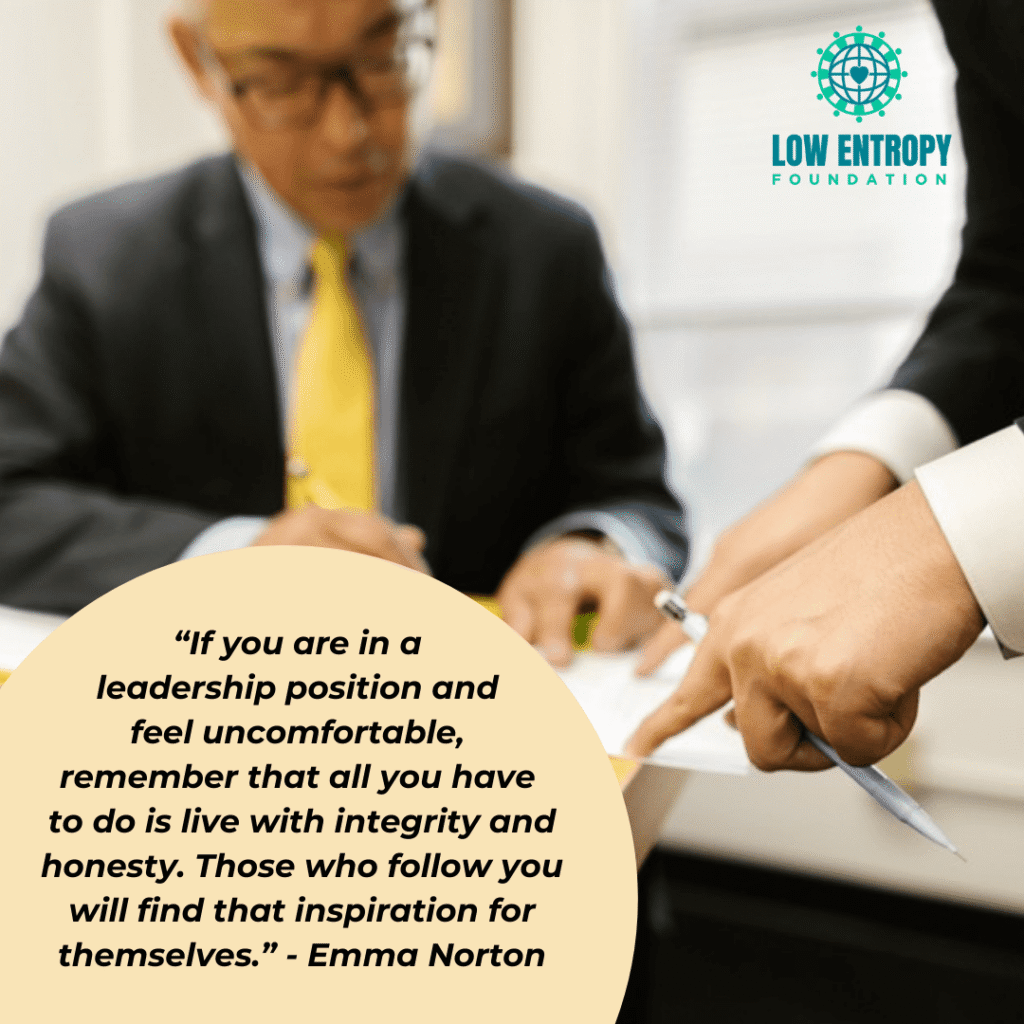Leading: The Way

Great leaders are born and made. How? Low Entropy Volunteer Writer Emma Norton explains. What does it take to be a good leader? Some people are naturals, even born with it. They have a level of strength and integrity that is inherent. Alternatively, some leaders evolve through experience. They rise above situations designed to […]
